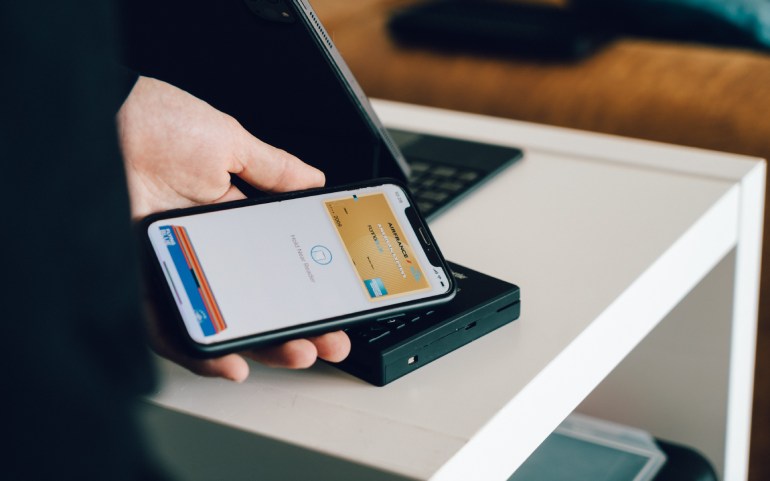- Category: July 2021 - Mobile Marketing & Analytics
 The mobile wallet is an app that can be installed on a smartphone, or it is an existing built-in feature of a smartphone that stores credit card, debit card, coupons, or reward cards information. Once the app is installed and the user inputs payment information, the wallet stores this information by linking a personal identification format such as a number or key, QR code, or an image of the owner to each card that is stored.
The mobile wallet is an app that can be installed on a smartphone, or it is an existing built-in feature of a smartphone that stores credit card, debit card, coupons, or reward cards information. Once the app is installed and the user inputs payment information, the wallet stores this information by linking a personal identification format such as a number or key, QR code, or an image of the owner to each card that is stored.
Since our smartphones, like the wallet (including the extensive content) is our constant companion, it is actually a no-brainer to connect the annoying wallet to the mobile device, right? Anyway, businesses need to transform the way they operate to meet the ever-changing needs of their clients and the increasing use of mobile phones and devices.
When a user makes a payment to a merchant, the mobile app uses a technology called near-field communication (NFC), which uses radio frequencies to communicate between devices. NFC uses the personal identification format created for the user to communicate the payment information to the merchant’s POS (point-of-service) terminal. The information transfer is usually triggered when the user waves or holds an NFC-enabled mobile device over the store’s NFC reader.
Not all smartphones or mobile devices are equipped with NFC technology, including iPhone devices.
- For iPhone users, there are alternative ways to use their mobile wallets to make in-store payments.
- PayPal’s mobile wallet allows users to make payments using their mobile phone numbers during checkout. The phone number must be linked to the user’s PayPal account for the transaction to be approved. While PayPal uses phone numbers, other mobile wallets use other personal features identifiable to the user.
- The LevelUp mobile wallet uses QR codes which can be scanned during checkout.
- The defunct Square Wallet used the image of the user which could be easily verified by the teller or attendant.
Fraudulent activities, such as identity theft, are harder to initiate with mobile wallets. While a user’s credit card can be easily stolen or duplicated, smartphones are not that easy to steal. A smartphone that is stolen may be hard to access if there is an access password or fingerprint check installed. Mobile wallets may also have encrypted keys and are also useful for retail businesses that experience high volumes of transactions per day because mobile wallets help to reduce wait and payment times. This is a win-win for both the customers and the business.
Because mobile wallets are a digitized version of physical wallets, almost every valuable card stored in a physical wallet can also be stored in the mobile wallet such as driver’s license, social security number, health information cards, loyalty cards, hotel key cards, and bus or train tickets.
In a nutshell, mobile wallets are a convenient way for a user to make in-store payments and can be used at merchants listed with the mobile wallet service provider. Apple Pay, Samsung Pay, and Android Pay are examples of mobile wallets that can be installed on a hand-held or wearable device. A regular PayPal account is a form of a digital wallet, but when it is used in conjunction with mobile payment services and mobile devices, it functions as a mobile wallet. (Source: Investopedia)
By MediaBUZZ


